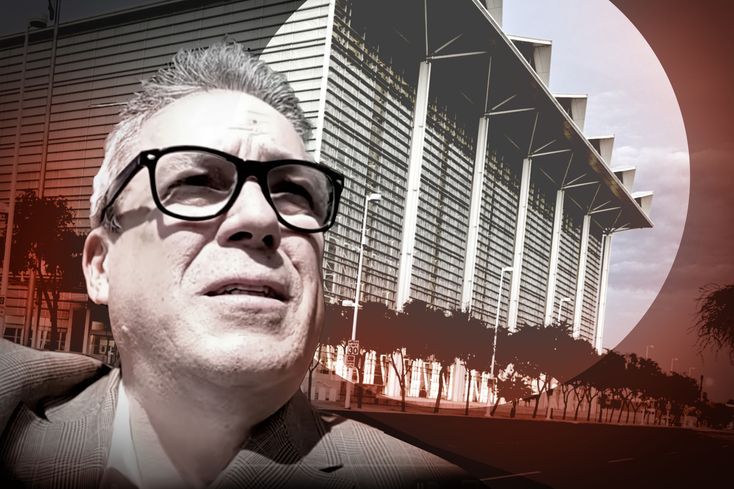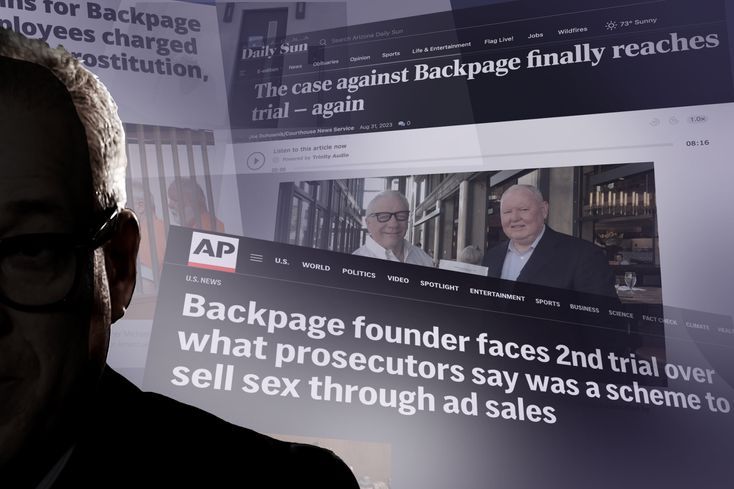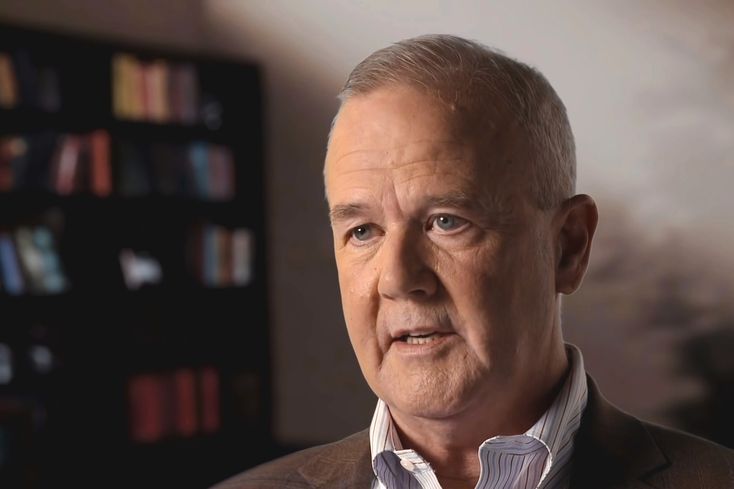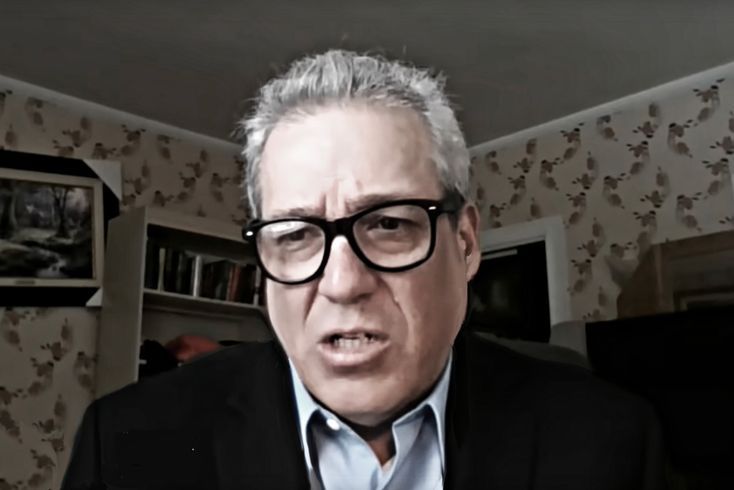Tony Ortega Called Child Sex Trafficking “Small Problem”
The National Center for Missing and Exploited Children said 73% of all child trafficking reports they received from the general public involved Backpage.com.

The federal trial of Michael Lacey, cofounder of sex ads website Backpage.com, and four coworkers, facing a 100-count felony indictment for facilitating prostitution and money laundering, is going forward in Phoenix.
Lacey, his partner James Larkin, who committed suicide July 31, and others operated Backpage.com, an online classified advertising business which the government alleges was primarily a vehicle for advertisements for prostitution. Many of the ads, the government claims, sold underage victims of sex trafficking.
It was a lucrative business, netting Lacey and Larkin’s company over $500 million in prostitution-related revenue from Backpage’s inception in 2004 until the federal government shut it down in 2018.
Not indicted and not a part of the trial is Tony Ortega who was editor of The Village Voice, sister company of Backpage.com whose sex ads revenue funded the Voice including Ortega.
Ortega’s war on those objecting to Backpage asserted that the site was protected under the First Amendment and that child sex trafficking was a “small problem.”
He claimed in 2011, “Recently, we’ve come under attack because a small number of those ads involve underage users who violate our terms of use”—targeting the underage victims sold for sex on Backpage and calling them “underage prostitutes.”
Refuting the “small number” of children trafficked through Backpage, the National Center for Missing and Exploited Children said that 73 percent of all child trafficking reports they received from the general public involved Backpage.
FAIR Girls, an anti-human trafficking organization based in Washington, D.C., reported: “Virtually all of FAIR Girls’ clients—some as young as eleven—have at some point been sold through Backpage.com.”
As the government began showing interest in Backpage’s apparent facilitation of prostitution, Backpage principals developed a system to automatically and manually clean up the more blatant ads, removing such terms as “Daddy’s Little Girl,” “fresh” and “Lolita” from the descriptions in the site’s “adult services” listings.
The 2018 federal indictment states: “Backpage also utilized a variety of strategies to conceal the true nature of the ads being posted on its website. Most notably, Backpage periodically used computerized filters and human ‘moderators’ to edit the wording of (or block) ads that explicitly offered sexual services in return for money.”
“Yes, we take 30 million ads a year from users at our Backpage.com website, and we have about 100 employees who moderate 20,000 ads a day,” Ortega wrote about Backpage’s “moderation” practices, claiming underage ads were a “small number.”
The indictment states that Backpage was “notorious for being the internet’s leading source of prostitution advertisements,” and “Many of the ads published on Backpage depicted children who were victims of sex trafficking.”
According to the indictment, “Virtually every dollar flowing into Backpage’s coffers represented the proceeds of illegal activity.”
More than 50 instances of charges filed in 22 states over a three-year period against traffickers of minors were aimed at pimps advertising on Backpage.com, according to the National Association of Attorneys General.
The 2017 report of the Senate Permanent Subcommittee on Investigations concluded, “The internal company documents obtained by the Subcommittee conclusively show that Backpage’s public defense is a fiction.…
“Backpage knows that it facilitates prostitution and child sex trafficking.…Backpage does not deny that its site is used for criminal activity, including the sale of children for sex.”
The current trial is the second. The first trial, which faced delays because of the pandemic, ended in a mistrial in September 2021. Finally rescheduled to begin in early August 2023, the second trial was held up yet again, for three weeks, by the suicide of James Larkin. Then it was delayed for Labor Day.
It was to restart September 6, with the defense set to finish opening arguments. But then codefendant Scott Spear, former executive vice president of one of Backpage’s parent companies, tested positive for COVID and insisted on being present in person at the trial, so it did not restart as scheduled.
Next, the government plans to call as their first witness Carl Ferrer, former CEO of Backpage, who pled guilty in 2018 to charges of money laundering and conspiracy to facilitate prostitution. Another Backpage executive, Dan Hyer, pled guilty a few months later to a single count of conspiracy and is set to be sentenced in September 2023.
Each of the indictment’s 50 counts of facilitating prostitution carries a possible five-year sentence, and each of 48 counts of money laundering carries a possible 20-year sentence. If the defendants are found guilty, they could spend the rest of their lives in prison.


